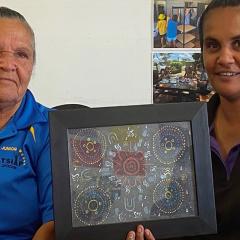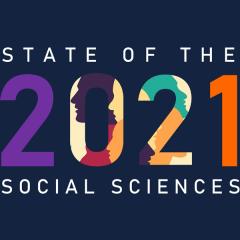Since November 2019, researchers from ISSR, UQ and ARTD Consultants have been working with the Queensland Department of Housing and Public Works (DHPW) to set the foundation for the evaluation of the Queensland Housing Strategy (2017-2027). This partnership is a flagship project of ISSR’s Social Solutions research group that is providing collaborative, evidenced-based and outcomes-focused research and evaluation support through an operational partnership.
 The Queensland Housing Strategy is an ambitious ten-year transformation of Queensland’s housing and homelessness service system so that every Queenslander has access to a safe and secure home that meets their needs and supports them to fully participate in the social and economic life of the state. The Housing Strategy is being operationalised through a series of three action plans, detailing in instalments, what the Government will do over the next 10 years.
The Queensland Housing Strategy is an ambitious ten-year transformation of Queensland’s housing and homelessness service system so that every Queenslander has access to a safe and secure home that meets their needs and supports them to fully participate in the social and economic life of the state. The Housing Strategy is being operationalised through a series of three action plans, detailing in instalments, what the Government will do over the next 10 years.
Through the partnership, the ISSR-led team has been providing agile support to the Department that recently included delivery of the overarching monitoring and evaluation framework for the Strategy. The development of the framework involved extensive co-design with the Department from the senior level Steering Committee (chaired by the Deputy Director General, DHPW) to an officer level working group over many months and iterations. As well as undertaking the co-design process, the research team reviewed relevant literature, policy and practice documents and engaged with stakeholders, to develop the Framework. It specifies how to collect and analyse credible evidence for policymaking, continuous quality improvement and resource allocation. The centrepieces of the Framework are a strategy logic and outcomes matrix, which specify the intended outcomes and impacts of the Strategy and how these will be measured. Each reflects the conceptualisation of housing as a foundational and essential human service.
The Framework is flexible enough to respond to emerging policy and program directions and still provide a structured and coordinated approach for monitoring and evaluation. Importantly the Framework is now providing a robust structure for monitoring and evaluating the Department’s responses to the unforeseen COVID-19 pandemic. In particular in the coming months the framework will be applied to post implementation reviews of the Department’s initiatives on the residential rental sector and people experiencing or at risk of homelessness.
The partnership has also delivered an interim analysis on the progress of the Strategy that was used to support the Department’s state budget preparations, and a policy and practice review that benchmarks the Strategy against comparable jurisdictions undertaking housing system reform (including Western Australia, New South Wales, Victoria, New Zealand and the United Kingdom). What’s clear from both of these supporting pieces of work is that the Department has a strong record in leading practice and building productive partnerships within the sector to design innovative and durable homelessness and housing initiatives.
This partnership approach highlights that policy success is not just about achieving outcomes, but also about working with stakeholders directly and acting where needed, as an external expert and critical friend to progress actions and demonstrate lessons learned. A key approach of the initial phase of the partnership was embedding members of the evaluation team – Professor Tim Reddel (ISSR) and Dr Emily Verstege (ARTD) – with the Department. Working regularly from within the departmental offices meant that Tim and Emily were more readily able to build relationships, provide practical support and understand not just the policy intent but the real time experience of departmental officials and stakeholders in implementing the Strategy. ISSR engagement with the Department through this research and evaluation partnership demonstrates the benefits of the Social Solutions concept being espoused by ISSR – collaborative, evidenced-based, outcomes-focused policy built on relationships at the strategic and operational levels. The contracted research and evaluation partnership will continue through until early 2021, but the longer-term strategic relationship with the Department will endure.
“Having the team from ISSR and ARTD working closely with the department in our office has enhanced the partnership approach, producing a productive alignment of in-house content expertise and data sources with rigorous research and evaluation methodologies. The close working relationship has also enabled a highly responsive approach to evaluation, which has been invaluable with the recent changes and challenges resulting from the coronavirus.”
Brad McCoy, Director, Strategy and Research Department of Housing and Public Works
Project Team: Professor Tim Reddel (UQ ISSR), Dr Emily Verstege (ARTD), Dr Jack Lam (Q ISSR), Suzanne Brangwin (UQ ISSR), Dave Porter (UQ ISSR), Laurel Johnson (UQ School of Earth and Environmental Sciences) , Stephanie Wyeth (UQ School of Earth and Environmental Sciences), Dr Elin-Charles Edwards (UQ School of Earth and Environmental Sciences), Andrew Hawkins (ARTD), Associate Professor Cameron Parsell (UQ School of Social Science), Professor Rhema Vaithianathan (UQ ISSR), Professor Mark Western (UQ ISSR).



